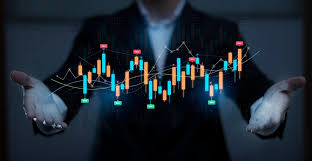
How to Start Forex Trading: A Comprehensive Guide
Forex trading, or foreign exchange trading, is an exciting and dynamic financial market where currencies are bought and sold. A lot of people are drawn to forex trading because it offers the potential for high rewards, but it also comes with risks. If you’re looking to dive into this lucrative market, understanding how to start forex trading is essential. You should begin by researching how to start forex trading Forex Brokers in Argentina who can guide you through the process.
Understanding the Forex Market
The forex market is the largest financial market in the world, with a daily trading volume exceeding $6 trillion. Unlike stock markets, which are centralized and operate within specific hours, the forex market operates 24 hours a day, five days a week. This presents unique opportunities and challenges for traders.
Key Features of the Forex Market
- High Liquidity: The forex market’s enormous trading volume ensures high liquidity, allowing traders to enter and exit positions quickly.
- Leverage: Forex brokers offer leverage to traders, meaning you can control larger positions with a smaller amount of capital. However, this can amplify both gains and losses.
- Variety of Currencies: Forex trading involves trading currency pairs, such as EUR/USD or USD/JPY, offering various trading opportunities based on global economic conditions.
- Market Volatility: Currency values fluctuate based on economic indicators, news releases, and geopolitical events, providing trading opportunities but also increasing risk.
Steps to Start Trading Forex
Embarking on your forex trading journey involves several steps. Below is a detailed roadmap to help you get started:
1. Set Clear Trading Goals
Before diving into forex trading, it’s vital to establish what you hope to achieve. Are you looking to make a side income, or is trading your pathway to financial independence? Your goals will influence your trading strategy and risk tolerance.
2. Learn the Basics of Forex Trading
Knowledge is key in forex trading. Familiarize yourself with essential terminology, such as pips, spreads, margin, and leverage. Many online resources and courses can help you understand these concepts.
3. Choose a Reliable Forex Broker

Selecting a trustworthy forex broker is crucial. Look for brokers that are well-regulated, offer competitive spreads, and provide a user-friendly trading platform. Read reviews and check their customer service responsiveness.
4. Open a Trading Account
Once you’ve chosen a broker, you will need to open a trading account. Brokers usually offer different account types—demo accounts for practice and live accounts for trading with real money. Many traders start with a demo account to practice without risk.
5. Develop a Trading Plan
A solid trading plan outlines your trading strategy, including how much risk you’re willing to take, your entry and exit points, and your goals. It’s essential to stick to your plan to maintain discipline in your trading.
6. Practice with a Demo Account
Before investing real money, practice with a demo account. This allows you to test your trading strategy in a risk-free environment. Make sure to simulate real market conditions as closely as possible.
7. Start Trading with Real Money
Once you feel confident in your trading abilities, it’s time to trade with real money. Begin with a small amount, and gradually increase your investment as you gain more experience and confidence.
8. Manage Your Risk
Risk management is crucial in forex trading. Use stop losses to limit potential losses and never risk more than a small percentage of your trading capital on a single trade. Keep emotions in check and don’t chase losses.
9. Keep Learning and Adapting
The forex market is ever-evolving, so continuous education is essential. Attend webinars, read trading books, and follow market news to keep your skills sharp. Consider joining trading forums and communities for additional support and insights.
Conclusion
Starting forex trading can be a rewarding journey if approached with the right mindset and preparation. Be aware of the risks involved and educate yourself to make informed decisions. By following these steps and developing a solid trading strategy, you can increase your chances of success in the forex market. Remember, patience and persistence are key in developing your trading skills and achieving your financial goals.
